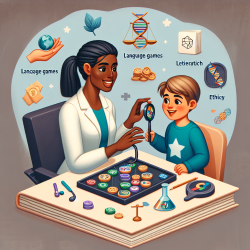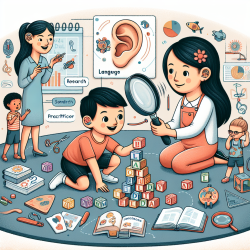In the dynamic field of speech-language pathology, effective communication is paramount. The recent research article titled “The Danger of Words”: Language Games in Bioethics by Michael A. Ashby offers insightful perspectives on the importance of language precision in bioethical debates. For practitioners, understanding these nuances can significantly enhance their ability to navigate complex ethical discussions, ultimately leading to better outcomes for children receiving therapy.
The study delves into the confusion and misinterpretation that can arise from the use of certain terms, such as “euthanasia” and “assisted dying.” These terms, often loaded with emotional and ethical connotations, can obscure the true nature of the practices they describe. Ashby emphasizes the need for a value-neutral taxonomy to clarify these terms and reduce ambiguity.
Here are key takeaways from the research that practitioners can implement to improve their skills:
- Embrace Precision in Language: Just as Ashby suggests in the context of bioethics, practitioners should strive for precision in their language. Avoiding euphemisms and clearly defining terms can prevent misunderstandings and ensure that all parties have a common understanding.
- Understand the Impact of Language: Recognize that the words we choose can significantly impact how information is perceived. This is particularly important when discussing sensitive topics with children and their families. Using clear and accurate language can build trust and facilitate better communication.
- Engage in Continuous Learning: The field of bioethics is ever-evolving, and staying updated with the latest research and debates can enhance a practitioner's ability to address ethical issues. Encouraging further research and reading, such as Ashby’s work, can provide valuable insights.
- Promote Transparency: Open and honest communication is crucial in building strong therapeutic relationships. Being transparent about the nature of interventions and their potential outcomes can help manage expectations and foster a collaborative environment.
By integrating these principles into their practice, speech-language pathologists can improve their communication skills and ethical decision-making processes. This not only benefits their professional development but also enhances the therapeutic outcomes for the children they serve.
To read the original research paper, please follow this link: “The Danger of Words”: Language Games in Bioethics.










